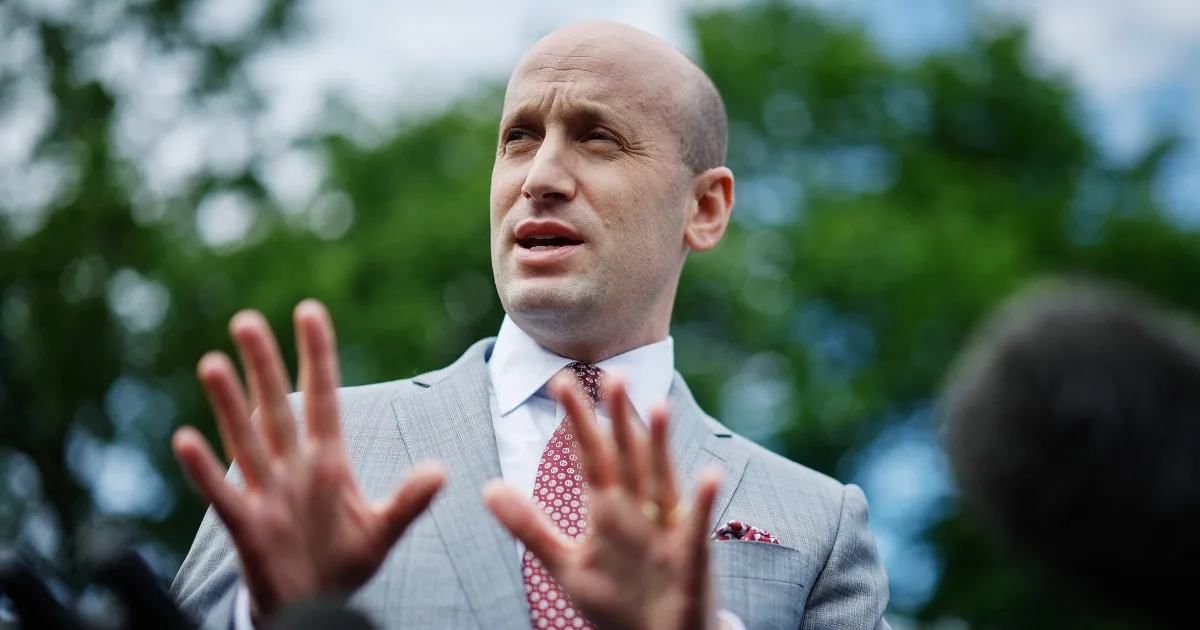
In a recent statement, Stephen Miller, a senior adviser to former President Donald Trump, revealed that the administration is actively considering measures to eliminate due process protections for unauthorized immigrants residing in the United States. Speaking to reporters on Friday, Miller emphasized that the Constitution, as the supreme law of the land, allows for the suspension of the writ of habeas corpus during times of invasion. He stated, “That’s an action we’re actively looking at,” while addressing the media in the White House driveway.
The White House has not provided immediate clarification regarding whether Miller's comments pertain to specific groups of individuals who have entered the country illegally or if they apply to all unauthorized immigrants. Additionally, the administration refrained from commenting on what Miller meant by the courts doing “the right thing.” His remarks suggest a significant shift in immigration policy, raising concerns about the future of due process rights for immigrants.
Miller also expressed the belief that the courts lack jurisdiction over immigration matters, asserting, “The courts aren’t just at war with the executive branch; they are at war with the legislative branch as well.” This statement underscores the ongoing tensions between the Trump administration and the judiciary regarding immigration enforcement and policy implementation.
Former President Trump has frequently voiced his dissatisfaction with constitutional due process protections, claiming they hinder his administration’s efforts to carry out mass deportations. In an interview with NBC News’ Kristen Welker, Trump stated, “I was elected to get them the hell out of here, and the courts are holding me from doing it.” This sentiment reflects a broader frustration within the administration regarding the pace of immigration proceedings.
Welker highlighted the Fifth Amendment of the U.S. Constitution, which asserts that “no person” shall be deprived of life, liberty, or property without due process of law. The Supreme Court has historically recognized that noncitizens possess certain fundamental rights. However, Trump countered that these protections complicate the deportation process, insisting that, “if you’re talking about that, then we’d have to have a million or 2 million or 3 million trials.” He further characterized some of the individuals targeted for deportation as “murderers” and “drug dealers.”
In response to ongoing legal challenges, the Trump administration has already circumvented due process in specific deportation cases. Utilizing the rarely invoked Alien Enemies Act, Trump authorized the deportation of alleged members of the Venezuelan gang Tren de Aragua to a prison in El Salvador, arguing that the gang is “perpetrating, attempting, and threatening an invasion or predatory incursion against the territory of the United States.” However, three federal judges in various states have ruled that the gang's criminal activities do not constitute an invasion, highlighting the complexities of the administration's legal strategies.
The discussions surrounding the potential suspension of due process protections for unauthorized immigrants signal a pivotal moment in U.S. immigration policy. As the Trump administration navigates the legal landscape, the implications for both immigrants and the judicial system remain to be seen. Ongoing debates about constitutional rights and immigration enforcement will likely continue to shape the national conversation.